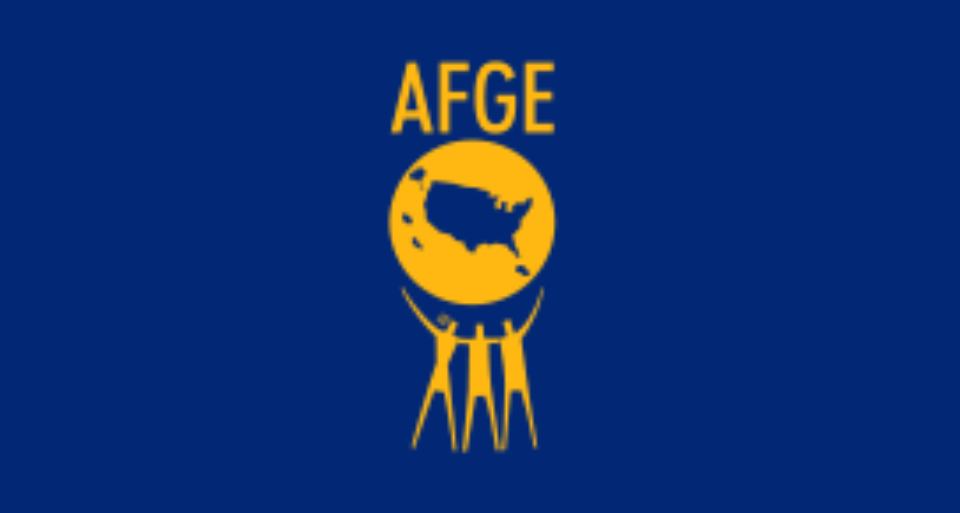New FLRA Chair Vows to Restore Pre-Trump Labor Precedent
Biden Demands Resignations from Anti-Union Operatives of the Federal Service Impasses Panel
February 3, 2021MESSAGE FROM THE SECRETARY: Our Most Sacred Obligation
February 9, 2021
Ernest DuBester testifies during a 2017 Senate Homeland Security and Governmental Affairs Committee hearing on his nomination to be an
FLRA member
New FLRA Chair Vows to Restore Pre-Trump Labor Precedent
One day after being named chairman of
the federal labor agency, Ernest
DuBester voluntarily recognized the
FLRA’s union, undoing his predecessor’s controversial decision
.Ernest Dub ester, the man tapped last month by President Biden to become chairman of the Federal Labor Relations Authority, is, by his own admission, somewhat obsessed with “context.”
During an hour-long interview with Government Executive, Dub ester, who has been a member of the FLRA for nearly 12 years, frequently brandished a pocket-sized copy of the law founding the agency that governs labor-management relations in the federal government, in the same way some lawmakers carry around a tiny copy of the U.S. Constitution.
“I always carry it with me, and sometimes that causes problems with my wife,” he joked, just before giving an abbreviated legislative history of nearly every major provision of the law.
That context, Dub ester argued, is necessary to understand that the law setting up how unions should operate at agencies was not just an administrative statute, but a set of specific policy choices designed to strike a delicate power balance, given the fact that federal sector labor groups have significantly less power than their private sector counterparts due to their inability to strike or bargain over wages.
And, the context is necessary to see why efforts to crack down on individual elements of those policy choices, particularly official time, arbitration and grievance procedures are, in Dub ester's view, misguided.
“With those unique attributes in mind, I’ve dissented from an extraordinary number of cases in the last three to four years,” he said. “To me, they’ve all been in areas that, to me, don’t appreciate the fundamental policy underpinnings of this law and are just going further in the direction of eroding fundamental rights in the area of collective bargaining and the scope of bargaining that agencies have to engage in when they’re contemplating making changes to their operations.”
In most instances where the Trump-era FLRA overturned longstanding precedent, the agency must wait until it is presented with a new case touching on those issues. And even in instances where the FLRA issued general statements of policy, which until recently was a rare occurrence, Dub ester said he must wait for agencies to request that the labor authority reconsider those pronouncements.
Under his tenure, Dub ester said he would like to get away from the practice of issuing general policy statements, absent an actual underlying dispute between an agency and its union.
“There’s an analogous process at the [National Labor Relations Board] with regard to its rulemaking, and what the NLRB has said is that this creates more stability for the parties because you don’t have the potential of these swings back and forth,” Dub ester said. “I understand that as a simplistic comment, but here’s the problem: In any instance and in any case that comes before us, so much of the time, it’s not only just about principles of law. The primary driving force may be the context and what the specific facts and circumstances are . . . The problem I had with these policy guidance's is that you have such a complexity of circumstances here, that a sweeping new pronouncement on a rule doesn’t fit the realities of the workplace.”
Additionally, although Dub ester is now the chairman of the FLRA, he technically remains in the minority among the board that adjudicates cases. Biden has yet to nominate a replacement for member James Abbott, whose term is expired and is serving in a holdover status, and the president must also nominate a general counsel, who would be responsible for issuing charges in unfair labor practice complaints.
Dub ester said that there is currently a backlog of around 450 pending unfair labor practice complaints, where regional directors have determined unions’ allegations have merit. Once a general counsel is in place at the agency, that official can vet those findings and send those cases to administrative law judges for review.
Another priority for Dub ester will be the restoration of the FLRA’s Collaborative Alternative Dispute Resolution Office, which he said will help unions and agencies to work more collaboratively through problems and reduce the need for litigation. The office also will work with parties in unfair labor practice cases to reach settlements, further reducing the costs parties incur and hopefully reducing the number of cases that need to come before ALJs and the FLRA board.
But in the meantime, Dub ester said he hopes to focus on an issue upon which he can have a more immediate impact: the FLRA workforce. Between 2016 and 2019, the agency’s employee engagement score in the annual Federal Employee Viewpoint Survey has fallen from 84 to 64 out of 100. The Office of Personnel Management has yet to release the results of the 2020 survey, which was delayed twice due to the COVID-19 pandemic.
“If you want to improve performance at your agency, you have to focus on employee morale, and I believe, regrettably, that engagement and morale have been down the past couple years,” he said. “That’s unfortunate, so trying to restore that is really important . . . In my experience, the question around morale usually breaks down to a very fundamental and simple question: Do the employees feel like leadership places a high value on the importance of the agency’s mission, and is the work they’re performing important?”
Dub ester places part of the blame for the drop in employee engagement with the controversial 2018 decision by then-FLRA Chairwoman Colleen Duffy Kikoi to decertify the agency’s own union. That decision argued that because the FLRA is exempt from the provisions of the law governing federal sector labor unions, it would be a conflict of interest for FLRA employees to be unionized, overturning a 40-year-old Justice Department opinion allowing employees to organize.
One of Dub ester’s first actions as chairman was to voluntarily recognize the FLRA’s union again, although he said his colleagues on the board are still “contesting” it.
“There’s a section of the statute that’s very important to me in giving me guidance, and it is the very first reference to the statute on the powers and duties, and what it says, before any other specific responsibilities in terms of the kinds of cases and the like, is to provide leadership in policies and guidance related to the labor-management programs of other agencies,” he said. “When you have that responsibility, and the central nature of your mission is labor-management relations, it’s important to lead by example. For us to have that responsibility and not have a program even though we are authorized to do so, to not recognize the union is really an unfortunate action.”
This content is restricted to site members. If you are an existing user, please log in. New users may register below.
Share via:






